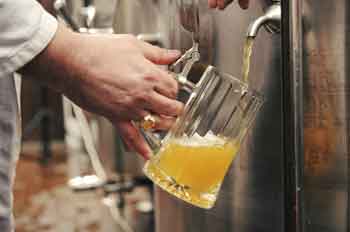ABFI: Adolescent alcohol consumption falls sharply

While the oireachtas prepares to vote yet again on the controversial and divisive Alcohol Bill, the ABFI has pointed yet again to evidence that alcohol abuse by Ireland's younger population is falling, thus calling into question the logic of the government measures contained within the Bill.
2 October 2018
The Alcohol Beverage Federation of Ireland has welcomed a new report from the World Health Organisation which shows that the prevalence of weekly alcohol consumption by adolescents in Ireland fell by 8.6 per cent between 2002 and 2014. The currrent rate 4.1 per cent, down from 12.7 per cent. The current European average is 12.9%.
The report, entitled ‘Adolescent alcohol-related behaviours: trends and inequalities in the WHO European Region, 2002–2014’, found that Ireland ranked 34th out of the 36 countries and regions examined in terms of the prevalence of weekly drinking by adolescents. It noted that the prevalence of weekly drinking among girls and boys is one of the lowest in the European region, at 2% and 5% respectively.
The report also found that in 2014:
- Ireland ranked 30th out of 36 countries in terms of the prevalence of drunkenness, below the European average
- There was a sharp fall in the number of adolescents in Ireland who said they had been drunk two or more times in their lifetime (from 32.1% to 16.2%)
- Ireland ranked 30th of 36 countries in terms of the prevalence of early alcohol initiation among girls
- Ireland ranked 31st of 36 countries in terms of the prevalence of early alcohol initiation among boys
Patricia Callan, director of the ABFI said that the Federation is totally opposed to underage drinking and the misuse of alcohol associated with it.
“We welcome this report which shows that important progress has been made since 2002,” Callan said. “There are a number of reasons for this decline. For example, in Ireland, we adhere to some of the strictest advertising codes in the world for both content and volume of alcohol advertising and we are committed to maintaining those high standards. These codes have existed since 2003 and mean that no alcohol advertising can appeal directly to young people or feature anyone who is, or appears to be, under the age of 25.”
Callan said that further initiatives are planned to further tackle the exposure of young people to alcohol, and the group is keen to work with the government and businesses to reduce the level of alcohol consumption among young people. “In terms of legislation,” Callan added, “we need targeted and evidence-based measures to do this, which is currently not the case with a number of proposals in the Alcohol Bill – particularly cancer warning labels.”



 Print
Print



Fans 0
Followers